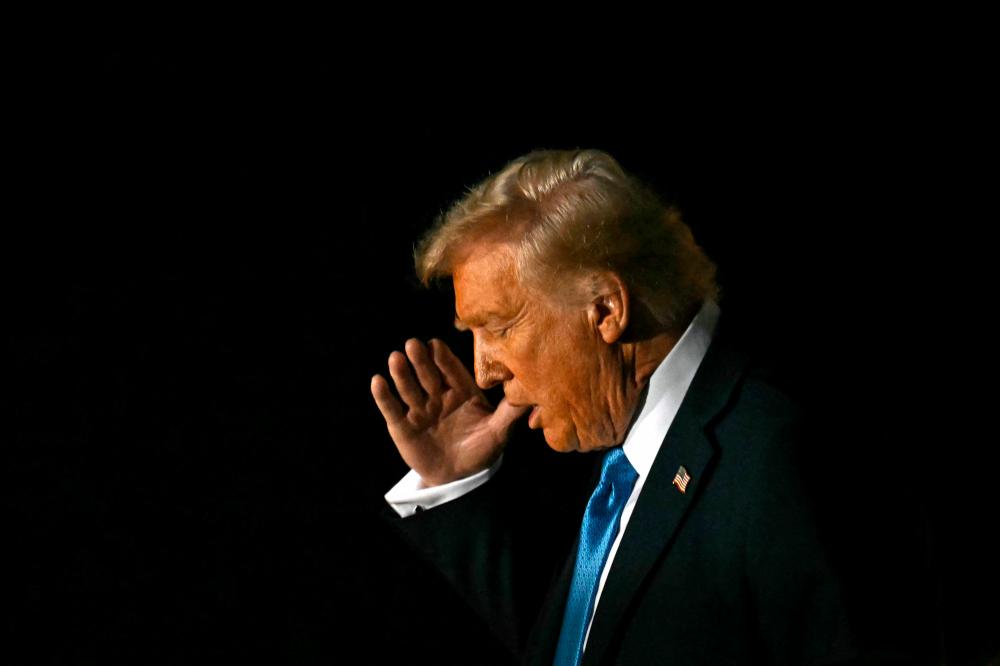WASHINGTON: A federal judge on Friday temporarily blocked U.S. President Donald Trump's administration from freezing federal grants, loans, and other financial assistance at the urging of Democratic state attorneys general who said the Republican's policy would jeopardize critical government-funded services.
The ruling by U.S. District Judge John McConnell in Providence, Rhode Island, came at the behest of Democratic attorneys generals from 22 states and the District of Columbia and despite the White House saying it was rescinding Monday's memo from its budget office detailing the policy.
McConnell said evidence showed the policy remained in effect despite the rescission of the Office of Management and Budget’s “wide-ranging, all-encompassing, and ambiguous” directive, which he said was in “name-only” and possibly done to frustrate a legal challenge.
New York Attorney General Letitia James, who helped lead the litigation, hailed the decision, saying it would “block the White House's chaotic pause on federal funding.”
McConnell issued a temporary restraining order preventing the administration from pausing assistance to the states and barred the Trump administration for reissuing the OMB directive under any other name.
The order, which is in effect pending a further ruling from McConnell, comes after a judge in Washington, D.C., issued a shorter administrative stay pausing the policy in response to a separate legal challenge by several nonprofit groups. A hearing in the Washington case is scheduled for Monday.
The U.S. Department of Justice, which is defending Trump's policy in court, declined to comment.
McConnell, an appointee of Democratic former President Barack Obama, said Congress had not granted the president “limitless power to broadly and indefinitely pause all funds that it has expressly directed to specific recipients and purposes.”
He said an abrupt pause in potentially trillions of dollars of federal funding would cause a ripple effect that would directly impact the ability of states and others to provide and administer vital services to their citizens.
Trump has already issued orders that aim to stop foreign aid, freeze hiring, shutter diversity programs across dozens of agencies, and reclassify federal workers to make them easier to fire while offering financial incentives to millions more to resign to shrink the government's size.
The Democratic state attorneys general said the memo from Matthew Vaeth, OMB's acting director, jeopardized over $1 trillion in grants states receive from the federal government to help pay for health care, education, transportation and other services.
The memo directed that funds be put on hold while the administration reviewed grants and loans to ensure they are aligned with Trump's priorities, including executive orders he signed ending diversity, equity and inclusion programs.
The states argued that the White House policy failed to account for the harm it would impose on grant recipients and violated the U.S. Constitution by usurping Congress's power to decide how federal money is spent.
A 1974 law called the Impoundment Control Act established procedures designed to restrict a president from not spending money appropriated by Congress.
Amid the litigation, the White House tried to clarify the pause, saying it would not impact Social Security or Medicare payments or assistance provided directly to individuals and only implicated programs covered by Trump's executive orders.
OMB then fully withdrew its memo on Wednesday, shortly before a hearing in the lawsuit before McConnell. But the state attorneys general argued all the administration had done was rescind a “piece of paper,“ not the underlying policy.
They pointed to a post on X by White House Press Secretary Karoline Leavitt shortly before the hearing concerning the memo’s withdrawal that declared: “This is NOT a rescission of the federal funding freeze.”









